I first blogged about my husband’s stoles here where I showed his red stole and the white and gold one. In this post I am showing his purple and green stoles. All were hand embroidered almost sixty years ago by his mother for his father who was also a parish priest and I think they are some of the nicest I’ve seen. They are in amazingly good shape, especially when you consider they are scrunched up and pushed into a bag on an almost weekly basis (the green one in particular). Reverential is not an adjective that could be applied to the way my husband cares for his mother’s finest handiwork – and yet I dare say she wouldn’t mind and would be only too pleased that they were still in regular use and the subject of much admiration. The embroidery has stood up remarkably well to rough handling and I should keep this in mind when I worry about how long my own needlework will last. I think after sixty years they deserve to be cleaned, but I don’t think the brocade will take kindly to being washed so I should perhaps take them along to a dry cleaner.
Purple may vary from purple to violet but should be sumptuous. It is the colour of Advent and also for the period from Ash Wednesday to the day before Palm Sunday. It may also be used for funerals and for the commemoration of the faithful departed, although black or white is usually preferred.
Green is the ecclesiastical colour for ordinary time which sounds a bit perjorative but which should be understood as being derived from the word ‘ordinal’ which means counted. The Sundays in ordinary time are counted, hence you hear ‘the First Sunday after Trinity’. That green is also considered as the colour of nature with associations with growth and flourishing adds another dimension to the symbolism of the colour.
Green can also be seen to be ‘ordinary’ in the more usual sense of the word, whether this was the original intention or not, for it is the colour most commonly used. In summation green is used from the day after the Presentation in the Temple until Shrove Tuesday and from the day after Pentecost until the eve of All Saints Day. It may also be used between All Saints Day and Advent, all of which means that should you walk into a church at random, this is the most likely colour to be visible in terms of ecclesiastical vestments and furnishings.
However, too much botheration about colour should not be encouraged. According to Gilbert Cope – and what an appropriate name is that? – in his book, ‘A Dictionary of Liturgy and Worship’ general rules for liturgical colours were not formally defined before the C16. In Pre-Reformation England yellow and green were interchangeable and myriad were the regional variations. If there were ‘best’ vestments in a church, they would be brought out for major festivals whatever the colour. The reformed church in general ignored liturgical colours until the Oxford Movement brought about a resurgence of interest in such matters. Over the years our village churches seem to have lost bits of furnishings, especially little pieces like pulpit falls, so we are not too slavish to the sequence of colours for all furnishings, although we are fortunate to have the four main colours of altar frontal in both churches.

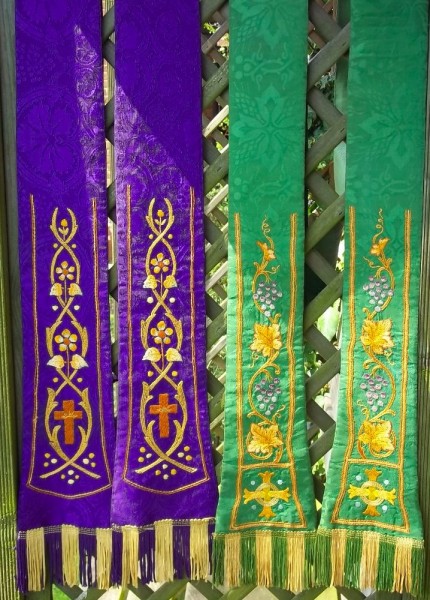
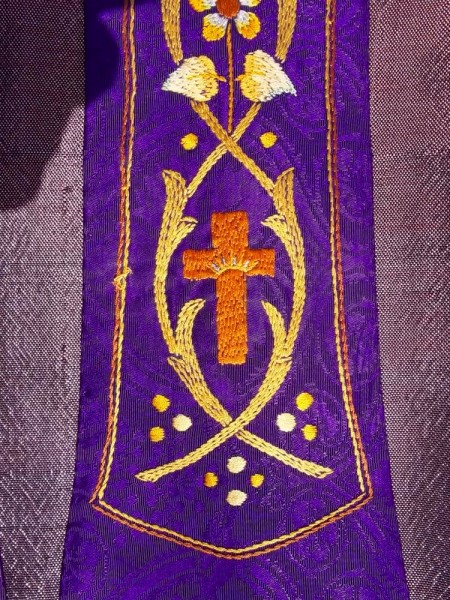
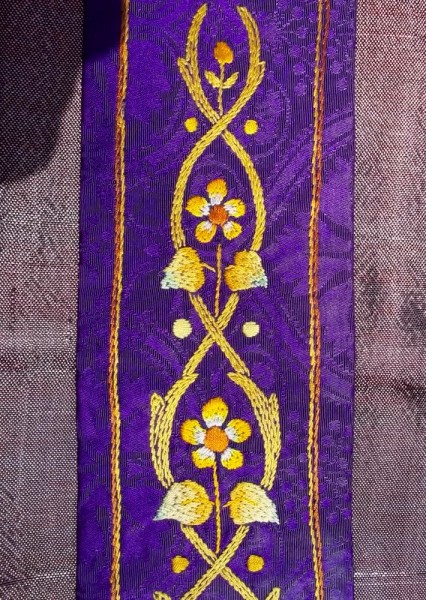
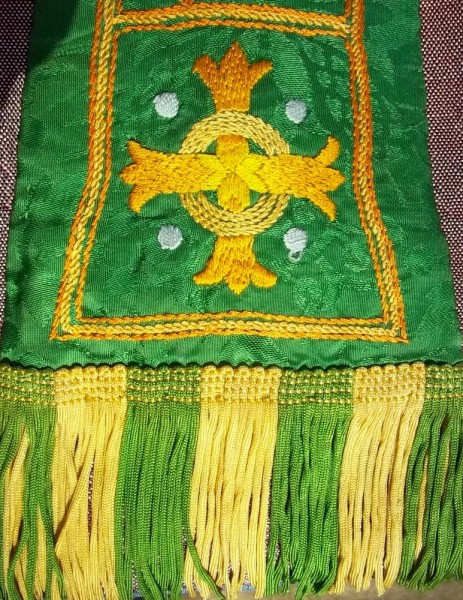
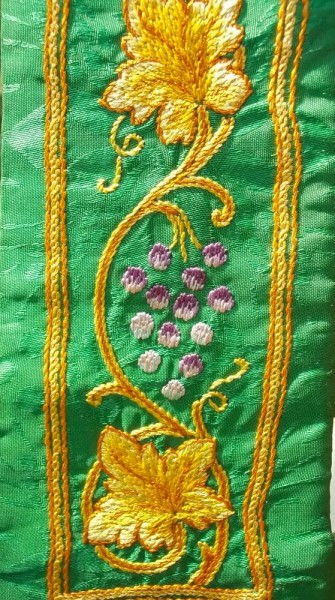
2 Comments
Loved reading about the stoles. I came to the richness of Anglican liturgical colours late in life, and have written, not too irreverently I hope, about that realisation here:
http://www.parttimepriest.blogspot.co.uk/2013/03/lent-for-extroverts-16-colour-me.html
Thanks for your post.
Dear Sir/Madam,
Hope that you are well, My name is Irfan Bashir and I am running a company here in sialkot pakistan manufacturing Greek and Russian Style Cross Sets, Cover of Holy Vessels, Stoles, ,Epigonations and uniform accessories,
I wish to do business with your company and would like to request that please if you are interested must contact me. My email and web address is: (kvvalityking@gmail.com ) http://www.kvvalityking.com
I assure you that you will find me not only an honest business associate ,but as well as a good friend too.
awaiting for your kind reply,
Thanks and best regards
Irfan Bashir
One Trackback
[…] For green and purple stoles, see here: […]